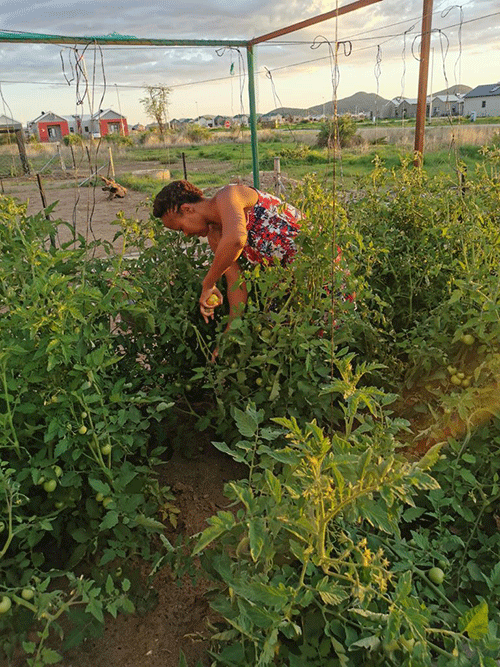Nollar Tjaimi, a crop farmer, has advised fellow and potential agriculturalists to be mindful of mixing vegetables that are not compatible as they can cause devastating effects to the growth of their production.
She made the remarks at the Farmers Information Day held at Ombo Rest Camp in Okahandja recently. Tjaimi was part of a panel of farmers and agricultural experts touching on various topics, including small stock farming, record keeping, infrastructural issues, investing in good quality animals, vaccination and other aspects.
“You can grow onions with carrots and green peppers but you cannot grow mealies with those veggies because there is a possibility the insects attracted by tomatoes will affect the mealies. When planting, be mindful of the types of vegetables that can be grown or produced together and which ones cannot,” stressed Tjaimi.
The fervent farmer is the personal assistant to the tourism minister Pohamba Shifeta. An ardent farmer, Tjaimi has ventured into various types of farming including livestock farming, but her passion lies with crop production as she has four backyard gardens in different areas.
She said knowing which crops go together will also guide the farmer in determining a feasible planting technique that has the ability to prohibit insects from infesting certain plants.
She demonstrated a practical example of what can happen when butternut is planted alongside tomatoes.
“That’s a no go area. The flowers are visible but it won’t bear the vegetable because it’s planted with another product that prevents it from growing and you will end up with immature produce,” she said.
Tjaimi said it is important to note that growing everything together is not ideal, as the vegetables will not grow. The seed packets also indicate whether the vegetable should be grown in the ground or first start in containers.
“When it comes to carrots, it is advised that one must directly plant them in the ground to ensure they are starting. These are also sensitive vegetables. If they are not placed well, they can get skewed. The other issue is sometimes if the soil is not properly managed, carrots growth can be affected,” she shared.
Tjaimi said those who would like to venture into crop farming should ensure that their soils are appropriate and fit enough for growing crops.
“Sometimes due to the growing of crops, the soil might have lost all the nutrients but it can be somehow rectified by planting beans because they bring nutrients to the soil,” she informed.
She also stated that some people overthink when it comes to setting up gardens.
“It doesn’t have to be a humongous garden. You can have onions, green pepper and tomatoes, in the long run, you will be able to save money that was used to buying those items initially which means the money used for buying those items can be diverted to other things,” she hinted.
The agriculture ministry›s green scheme and the National Horticulture Development Initiative (NHDI) are meant for growing local agricultural production. The green scheme boosts the development of irrigated agronomic production.
Under the NHDI, the government intends to increase local production and enable the marketing of fruit, vegetables, livestock fodder, and other horticultural products.
Agriculture is one of Namibia’s most significant sectors, with the majority of the inhabitants reliant directly or indirectly on the sector for livelihoods.
-psiririka@nepc.com.na



